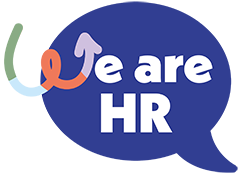Introduction
In today’s rapidly evolving business landscape, uncertainties and risks loom large. Organizations must adapt or face the prospect of falling behind or even succumbing to the challenges of a dynamic environment. To fortify your organization’s ability to withstand the unexpected and bounce back from adversity, cultivating resilience becomes paramount.
Understanding Resilience
Resilience entails fortifying both individuals and groups within the organization to effectively navigate change, respond to challenges, and proactively anticipate future trends. To assess your organization’s resilience, ask the following questions:
- Is your organization actively learning from current experiences and discerning signs of the future?
- Can your organization enhance its capacity for foreseeing potential future scenarios?
- What steps can be taken to improve adaptability?
- How can you bolster your organization’s ability to handle crises and adversity?
HR professionals are ideally positioned to help the organization address these critical inquiries and prepare for an uncertain future.
Importance of HR on Ongoing Organisational Development
Traditionally, organizations have focused on continuous process improvement, with HR playing a key role in promoting a culture of learning. However, the challenge today extends beyond improvement – it’s about staying agile and responsive to evolving market dynamics and competitive threats.
- To meet this challenge, organizations should regularly review their actions and decisions with an eye on both the present and the future. Consider:
- The impact of recent events, such as the pandemic, on your organization.
- The factors that facilitate workforce learning and whether they are future oriented.
- Your organization’s ability to detect emerging changes in the environment through various sources like partnerships and alliances.
Importance of HR improving Future of Organisation
Assumptions about the future that resemble the present can be detrimental to an organization. To cultivate resilience, organizations must think ahead and contemplate a range of possible futures. Start by addressing these future-focused questions:
- How does your organization identify and respond to emerging trends?
- How can you foster a more forward-thinking approach?
- What are the critical environmental factors that could affect your organization in the medium to long term?
Actions to Encourage Resilience
These actions must work in harmony rather than existing as isolated initiatives, as their effectiveness depends on the support of key decision-makers.
Supporting Employee Resilience
Building organizational resilience encompasses various aspects, including learning and development (L&D) initiatives. HR should monitor individuals and teams undergoing change, addressing individual resilience through L&D methods such as coaching, skills-based interventions, and experiential learning.
HR can also play a role in strengthening managerial teams, creating motivating environments, and addressing stress management. L&D interventions can be integrated into broader programs like leadership development and culture change.
Enhancing External Awareness
It’s crucial to strike a balance between internal and external focus. Establishing links with external bodies, such as trade and professional organizations, can serve as valuable sensors for detecting relevant changes in the environment.
Aligning Structures with the Context
Organizational structures should facilitate change rather than hinder it. HR can help the organization assess its adaptability to new strategies and structures in response to changing conditions.
Strengthening Intra-Organizational Connections
HR can foster resilience by fortifying working relationships across the organization, emphasizing shared goals, collaborative planning, and joint projects.
Scenario Planning
Scenario planning aids in anticipating and exploiting emerging patterns. HR can contribute significantly to this process.
Conclusion and Next Steps
HR plays a pivotal role in enhancing an organization’s resilience. By regularly revisiting current plans and embracing a future-oriented mindset, HR professionals can help managers navigate uncertainty and prepare the organization for a resilient and prosperous future. As the business landscape continues to evolve, nurturing organizational resilience becomes not just a choice but a necessity for survival and success.
Are you ready to take your HR career to the next level and become a resilience champion in your organization? Explore the wide range of CIPD qualifications and courses to enhance your skills and knowledge. Visit We-are-HR to discover how CIPD can empower your HR journey.


